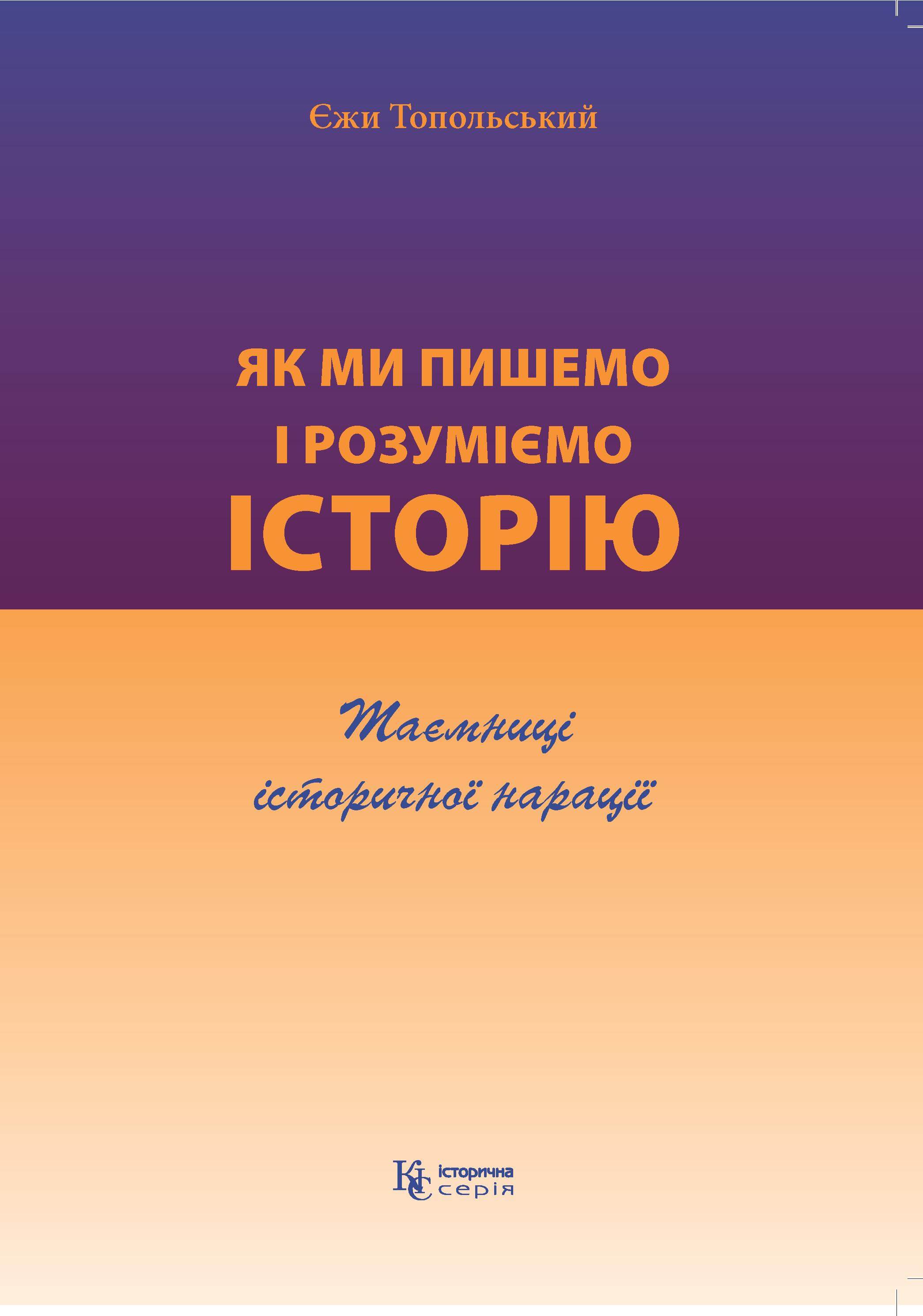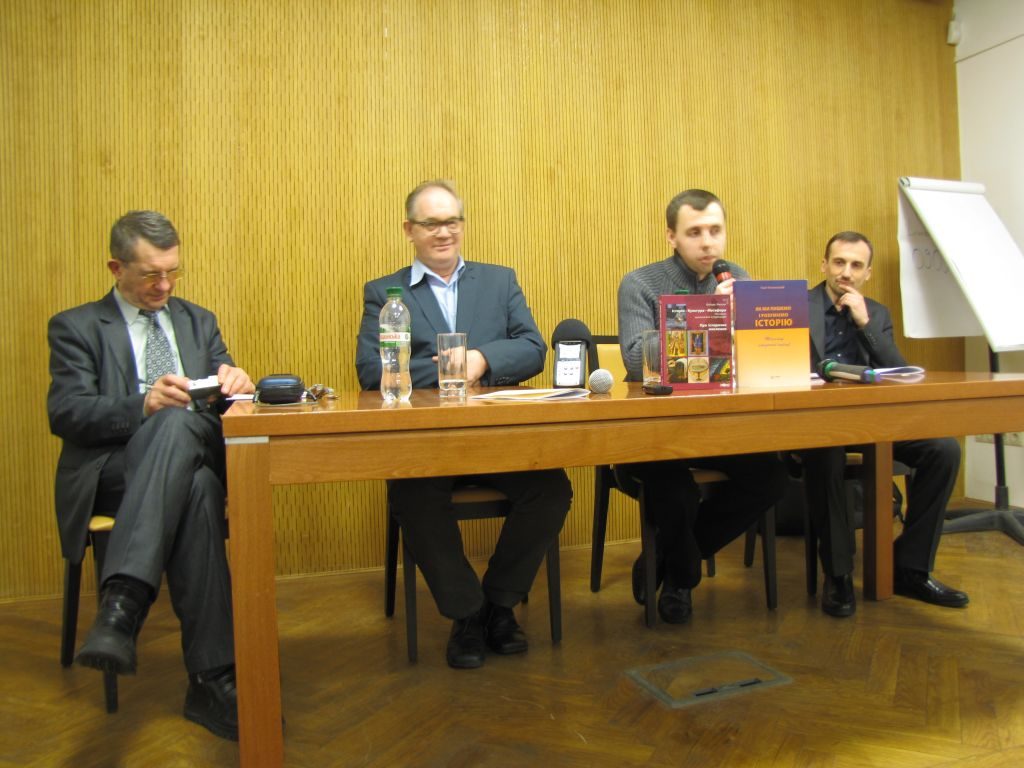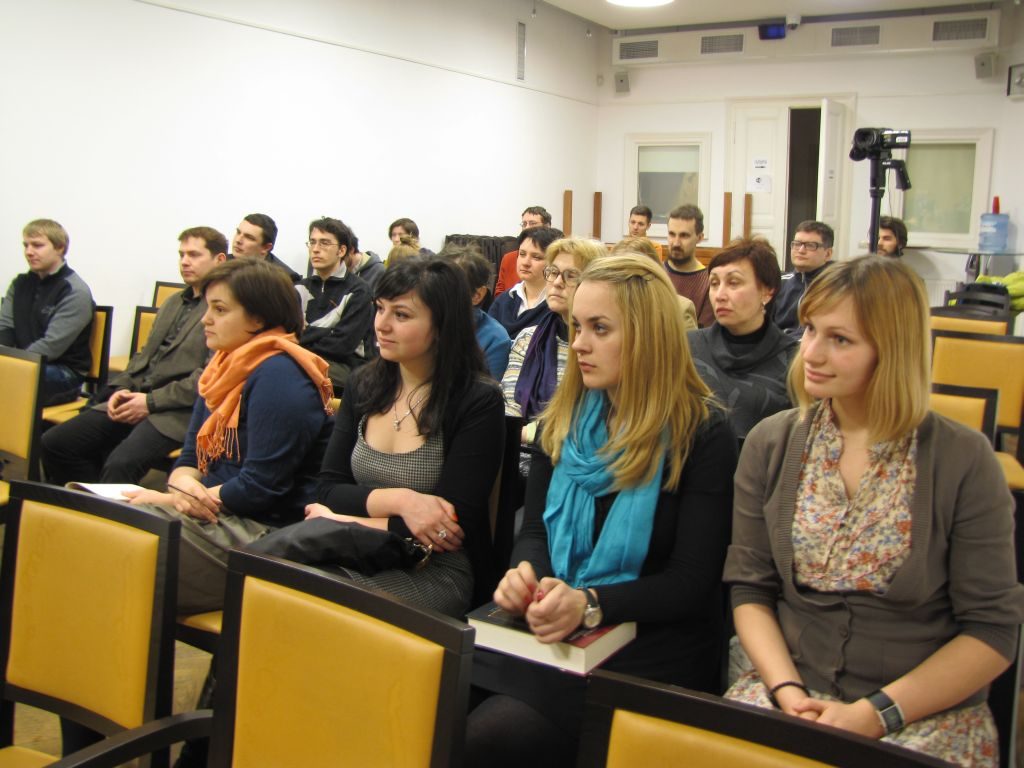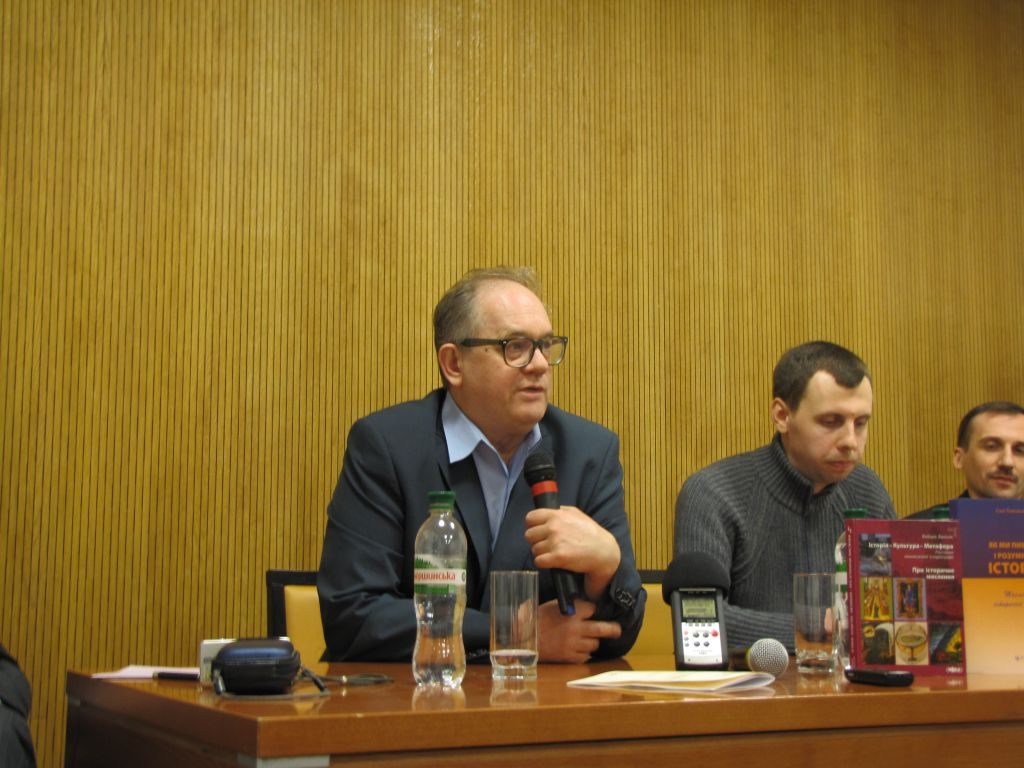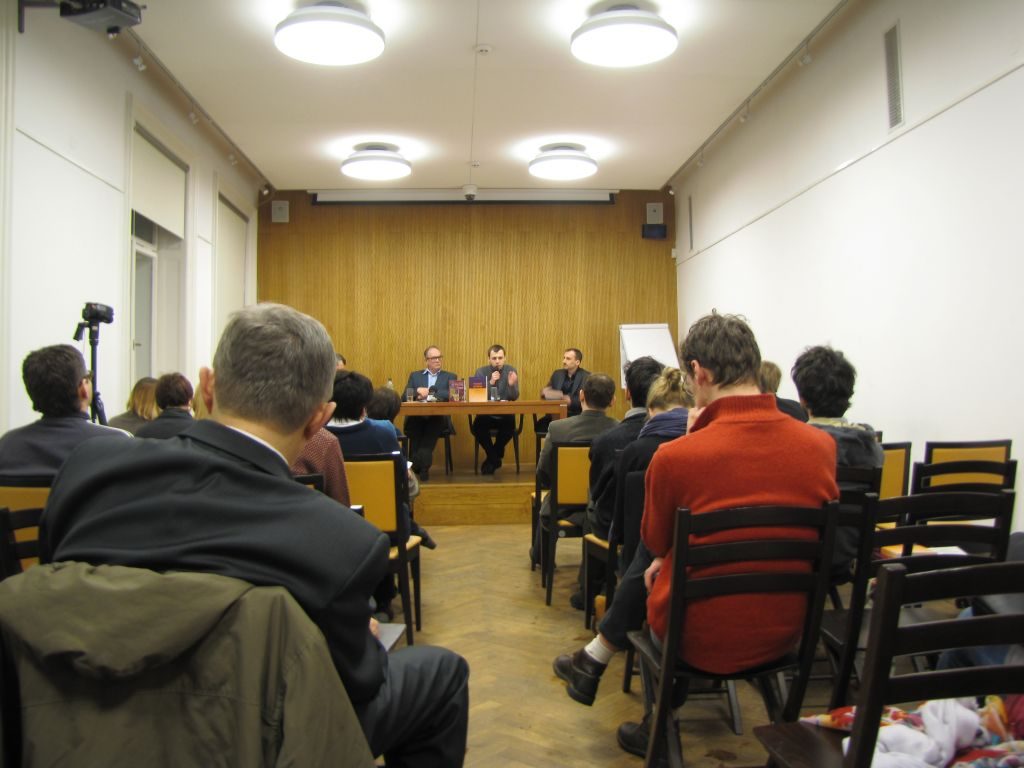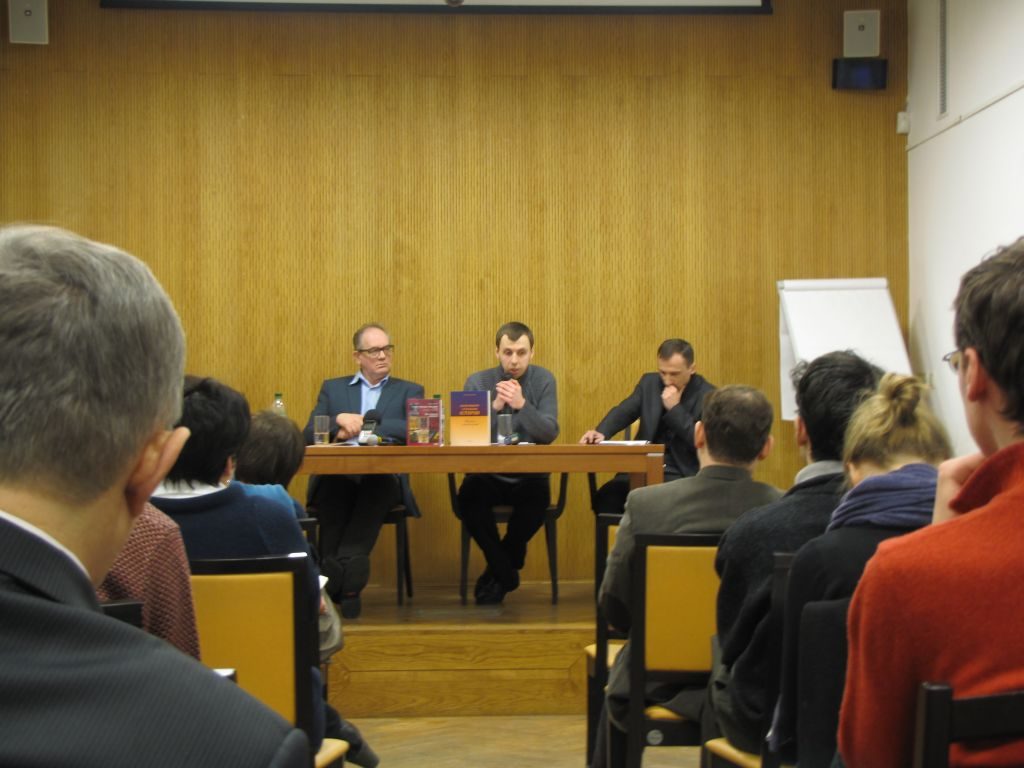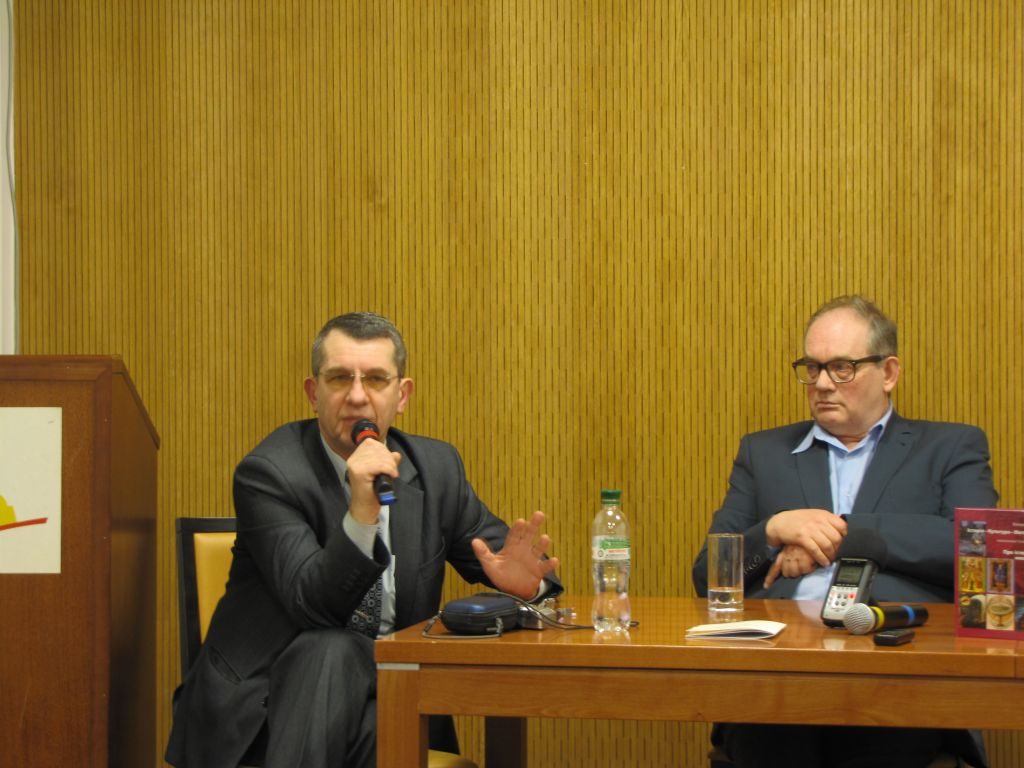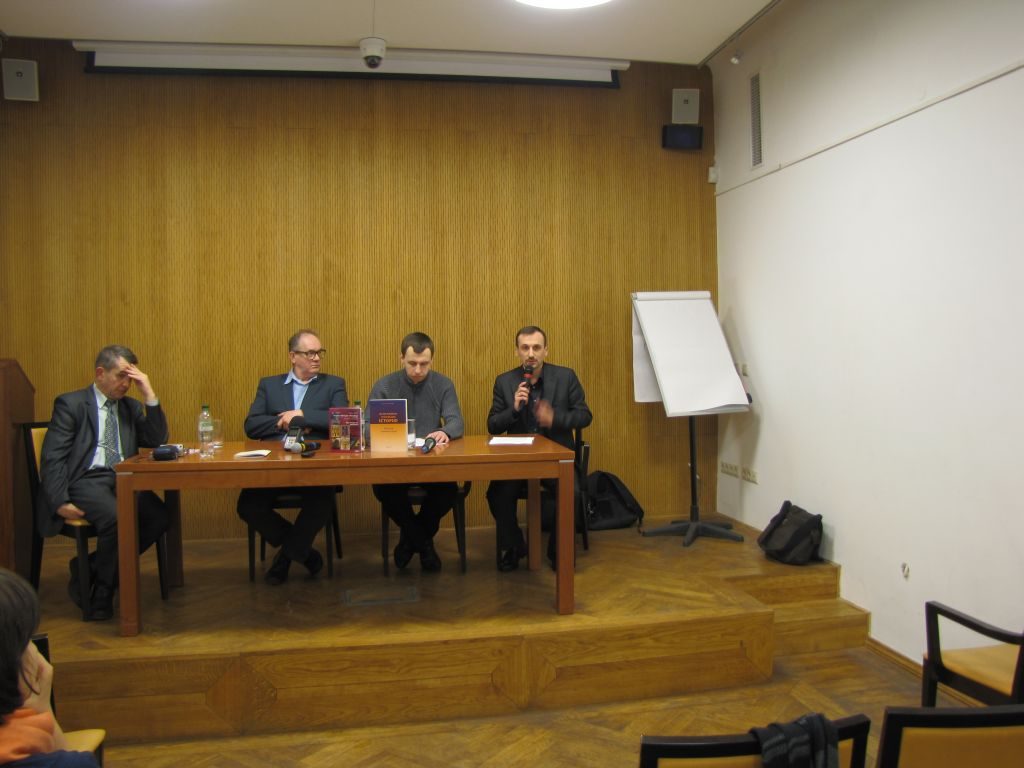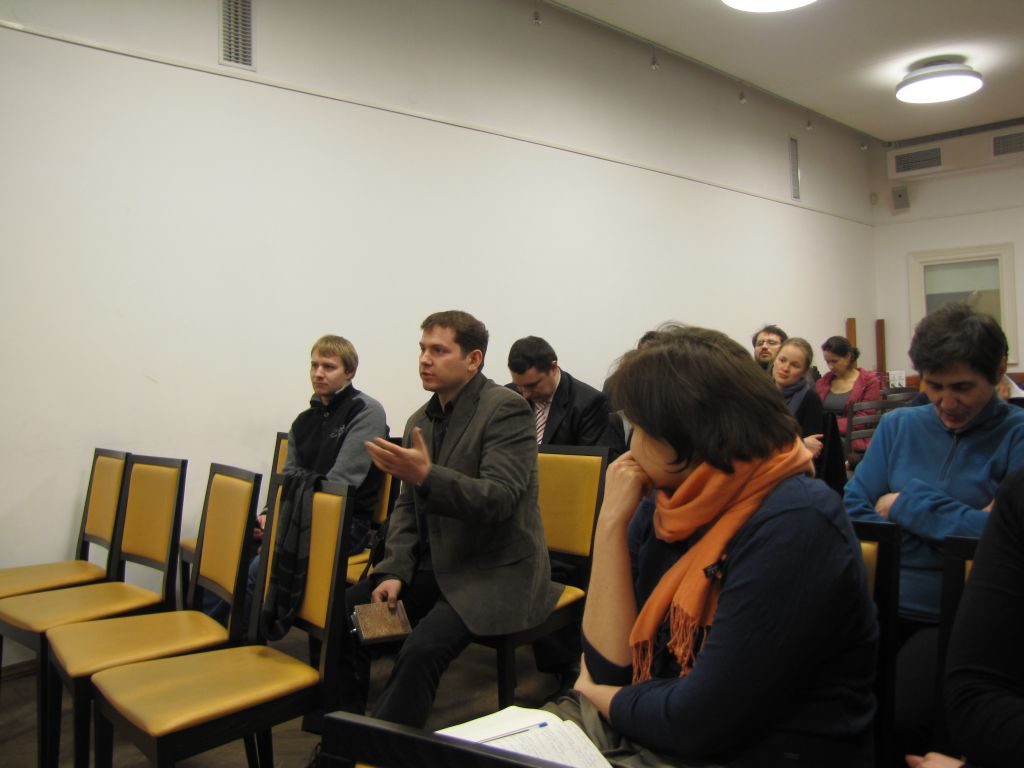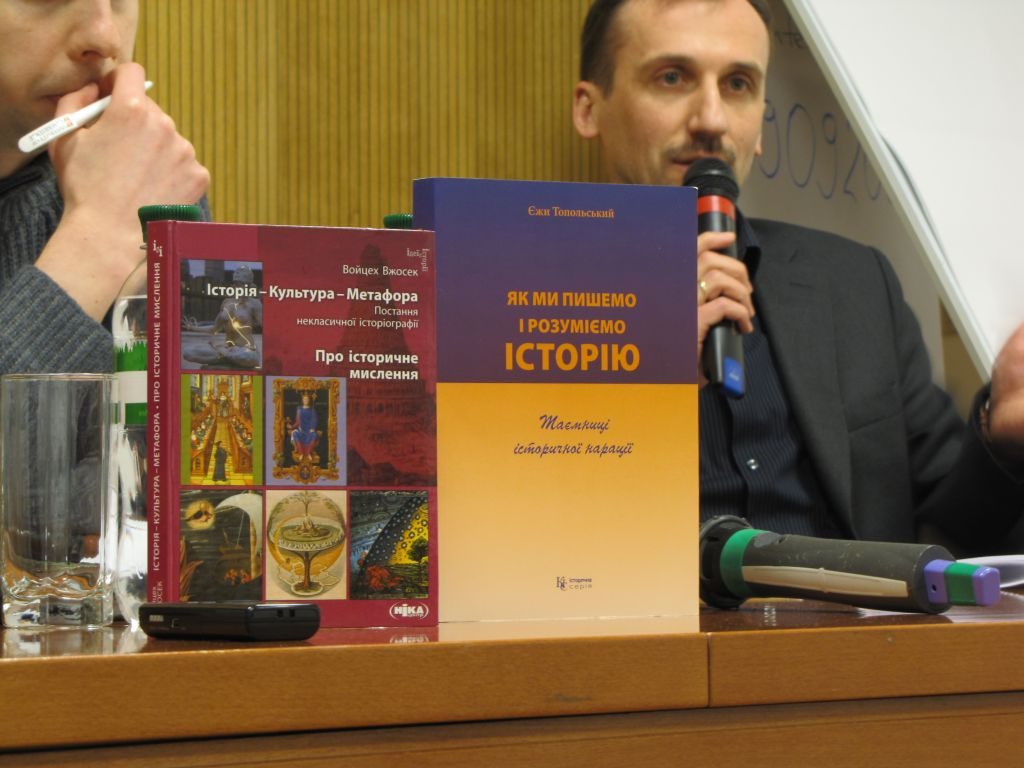Theory, History, and Society: the Social Function of History in Poland and Ukraine
March 18, 2013
Center for Urban History, Lviv
Center hosted a public discussion and presentation of Wojciech Wrzosek’s "History, Culture, Metaphor: the rise of non-classical historiography" (Kyiv: Nika-Center, 2012), and Jerzy Topolski’s "History as It Is Written and Received" (Kyiv: KIS, 2012).
Among the most often debated topics in modern western historiography is the question of the social significance of professional recording of history. Historians in the United States and western Europe are actively rethinking the social function of the discipline in order to respond appropriately to the challenges of the modern world, while guarding against the relegation of historiography to a simple support mechanism for other, more practically-oriented fields of academic pursuit. How are Polish and Ukrainian historians responding to this challenge? What role does history play in the public sphere in these countries? Does professional historiography perform any practical function? How should a theory of history address these and related questions?
Historian-practitioners and theoreticians from Poland and Ukraine led a dialogue dedicated to examining the following topics: the recasting of the issue of the practical function of historiography as a matter for public discussion, and the formulation in Ukraine of a contemporary and timely social accountability among historians.
Moderated by Volodymyr Sklokin, a historian and guest-editor at the historians.in.ua website. His research involves the debate surrounding the social significance of history in contemporary eastern European historiography.
Taking part in the discussion were
Wojciech Wrzosek
is Professor of History at Adam Mickiewicz University in Poznań, chief editor of the periodical “Sensus Historiae”, and vice-president of the Polish-Ukrainian Historiographical Society. He studied under Jerzy Topolski, a leading light of the Poznań school of methodology. He is engaged in western European – particularly French – theory and history of historiography, and the problems of historical thought and culture. He has authored and edited more than a dozen books on the theory and methodology of history.
Leonid Zashkilnyak
is a professor and scholar in the theory and history of historiography at the Ivan Franko National University of Lviv.
Marian Mudryi
is an associate professor at the Ivan Franko National University of Lviv, where his research involves the socio-political life in 19th century Galicia, and the problems of teaching history and the role of history in society.
About the books
Wojciech Wrzosek. "History, Culture, Metaphor. The Rise of non-classical Historiography. On Historical Thought." (Kyiv: Nika-Center, 2012; academic editors, A, Kyrydon, V. Sklokin, S. Troyan; translators, V. Sagan, V. Sklokin, S. Seryakov)
Grounded in the constructivist approach to the analysis of historiography, this volume is a significant contribution to the field of the humanities on the conceptualization of history as cultural praxis. Professor Wojciech demonstrates the limitations of the traditional method of interpretation of history as the science of imparting objective understanding of the past, proposing in its place a concept which defines history as contemporary cultural construct, but one directed at understanding past cultures.
Jerzy Topolski. "How Do We Write and Understand History? Secrets of Historical Narrative." (Kyiv: K.I.S. Publishing, 2012; academic editor, Y. Voloshyn; transator, N. Honcharenko)
Jerzy Topolski’s monograph is a thoughtful, balanced reflection on the concepts of the historian, historical research, and the instructional value of historical inquiry, and how these have been shaped and altered through the centuries. The questions raised and the responses offered by the celebrated Polish historian and methodologist will long remain of invaluable practicality to practitioners – both foreign and domestic – of historiography.
